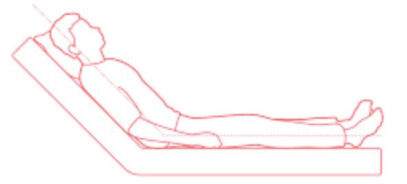what are the 7 stages of frontotemporal dementia??

Frontotemporal dementia (FTD) is a complex and progressive brain disorder that primarily affects the frontal and temporal lobes of the brain. It can cause a wide range of symptoms, making it crucial for patients, caregivers, and healthcare professionals to understand the various stages of FTD. In this comprehensive guide, we’ll walk you through the 7 stages of Frontotemporal dementia, offering valuable insights and tips for each stage.
Stage 1: Early Changes
In this initial stage, individuals may exhibit subtle personality and behavioral changes.
Symptoms can include increased impulsivity, apathy, and social withdrawal.
It’s essential to recognize these early signs and seek medical evaluation for an accurate diagnosis.
Stage 2: Language and Speech Problems
Stage 2 is marked by noticeable language difficulties.
Individuals may struggle with finding the right words, pronouncing words correctly, or forming coherent sentences.
Communicating with loved ones can become challenging, and professional guidance becomes crucial.
Stage 3: Social and Emotional Challenges
During this stage, social skills deteriorate further, leading to increased social isolation.
Emotional regulation becomes problematic, resulting in mood swings and difficulty recognizing emotions in others.
Caregivers may need to provide additional support and structure.
Stage 4: Cognitive Decline
In Stage 4, cognitive decline becomes more pronounced.
Memory problems, disorientation, and impaired judgment become evident.
Daily living activities may require significant assistance and supervision.
Stage 5: Loss of Motor Skills
Individuals in Stage 5 often experience motor skill impairment, including muscle weakness and coordination problems.
Mobility and self-care become increasingly challenging.
Adaptive devices and a safe environment are essential for maintaining quality of life.
Stage 6: Severe Cognitive and Functional Decline
At this stage, severe cognitive decline leads to limited verbal communication.
Individuals may require full-time assistance with daily activities, including eating and bathing.
Supportive care and specialized interventions are crucial.
Stage 7: End-Stage FTD
In the final stage, individuals with FTD are entirely dependent on caregivers.
They may lose the ability to walk, speak, and swallow.
Palliative care focuses on comfort and quality of life.
Conclusion
Frontotemporal dementia presents unique challenges at each of its seven stages, making it essential for caregivers and families to be informed and prepared. Understanding these stages can help provide better care and support for individuals with FTD. If you or a loved one is facing FTD, seek medical advice and explore available resources to navigate this journey with compassion and knowledge.



